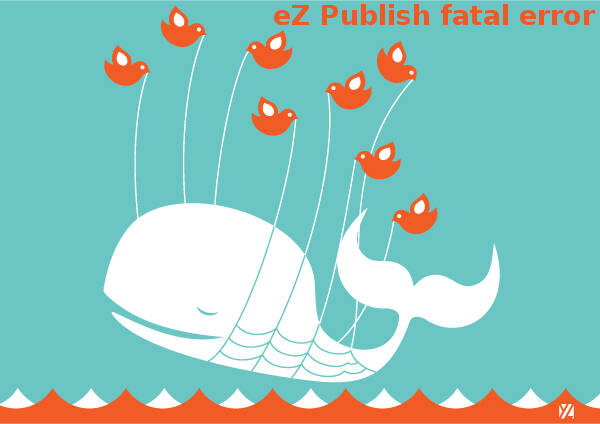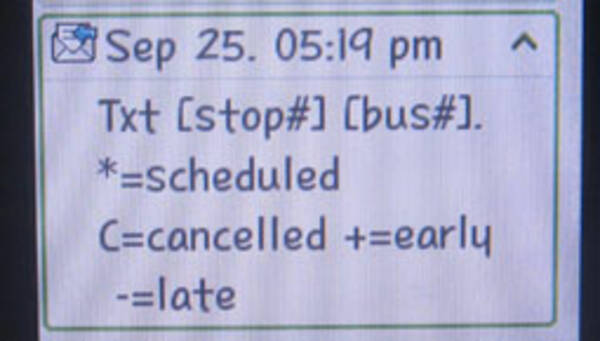In order to increase the image serving performance of high-traffic websites and improve the editorial user interface around image management, Mugo Web came up with an alternative way to serve content images in eZ Publish. It is aptly titled the "Mugo Image Server for eZ Publish".

Until some time ago, it was necessary to hack the eZ Publish legacy kernel in order to customize its generic error message, "Fatal error: The web server did not finish its request". This error occurs on all eZ Publish installations whenever there is an HTTP 500 status server error. It is a very common error; some examples of how it's triggered include: trying to access the value of a non-existent object attribute; the use of a non-existent PHP class or function; and too much memory usage.
Now, since this pull request from Mugo has been merged to the eZ Publish kernel, we have made it possible to customize the error page without hacking the kernel. In this post I will show you the new standard way to do this with a simple INI setting and your own PHP function.
Links are one of the core elements of the web. Links within body content are not only good for user experience, but also for SEO, engagement, and conversion. As we read, for example, a sports article, there might be links on the athlete names pointing to their biography pages. Or, when reading an author's bibliography, the book titles contained therein might be linked to the book pages. Adding and maintaining such in-body links can be very time-consuming; systems that auto-link the text can be a great help for content publishers.
A powerful addition a normal site search is for registered users to be able to save their searches, share the searches with others, and create customized e-mail alerts. This adds a deeper level of interactivity with the site and encourages users to regularly return to the site.
We recently added "quiz" functionality to eZ Publish by extending the eZ Survey extension. The purpose of this functionality is to enable companies to create "on-boarding" quizzes for new hires to learn about company policies and benefits. This was part of a larger intranet implementation.
The eZ Tags extension by Netgen is a great solution to the problems of managing large or ad hoc taxonomies. It especially solves problems around editorial user experience.
Recently, Mugo has added a bunch of improvements to the extension. This post talks about 2: allowing users to reorder tags by assigning priorities, and to select tags from a tree menu.

Countless presentations are made daily about the ubiquity of smart phones and the new, groundbreaking uses of smart phone apps. However, in many cases, humble text message services can be more useful and efficient.
Disqus is one of the most popular third-party commenting tools that can be integrated onto your website. There are a few special considerations when implementing Disqus onto a website where an article might have multiple locations and/or the article's URL might change. In this post, we'll walk you through a basic but robust implementation within an eZ Publish site.

Rasmussen Reports runs a contest where visitors have to guess what an upcoming public opinion poll result will be. Participants get points depending on how close they are to the actual result. A new question is asked every week, making for a fun, recurring way for visitors to interact with site content. Here's how we developed the contest on top of an eZ Publish extension called eZ Survey.

Optimizing the editorial experience in a Content Management System is a continuously evolving task. The challenge is to make the CMS an enabling tool to help editors publish content as efficiently as possible. In many organizations, specific requirements at each publishing step can be complex and dynamic. Here are 10 built-in tricks, ways to extend the interfaces, and ready-made custom extensions to unleash the power of eZ Publish content management.

I noticed a while ago on a client's website about Canadian books that some of the book nodes would have their url_alias broken and the url /content/view/full/<node_id> would be shown instead of the nice url. Running the updateniceurls.php would not solve the problem so I had a look at it and tried to see what could cause the problem and realized that the two tables ezcontentobject_tree (containing the node information) and ezurlalias_ml (containing the url_alias path parts) had different data for the same node.

We recently implemented two different designs where the menu remained fixed to the edge of the screen as the user scrolled. One case involved vertical scrolling and the other involved horizontal scrolling. Each had a subtle challenge and both were fun to work on!